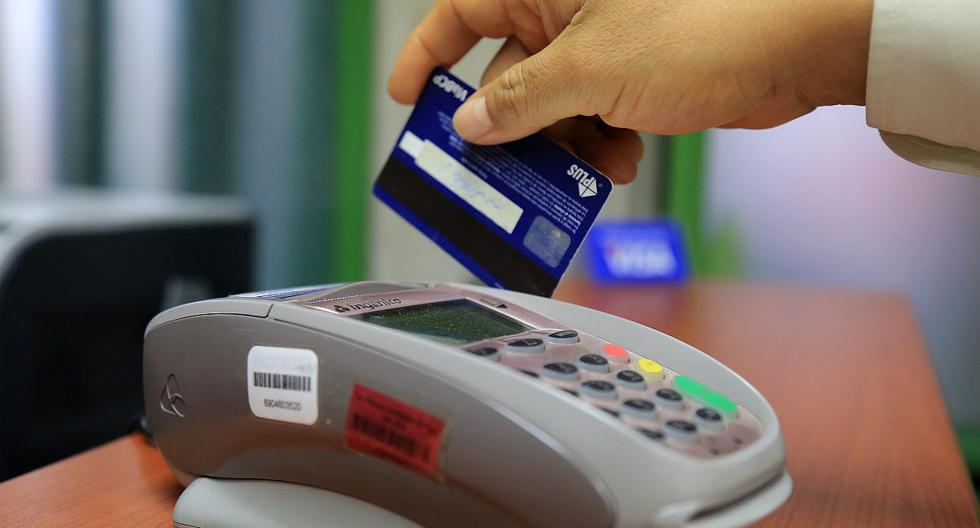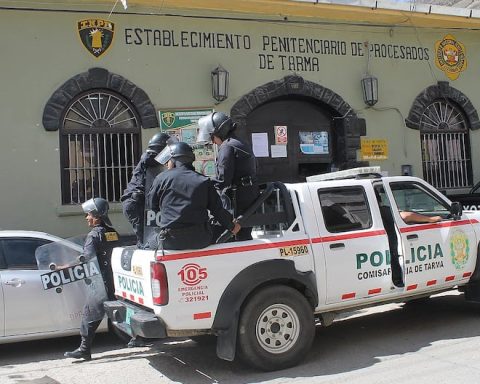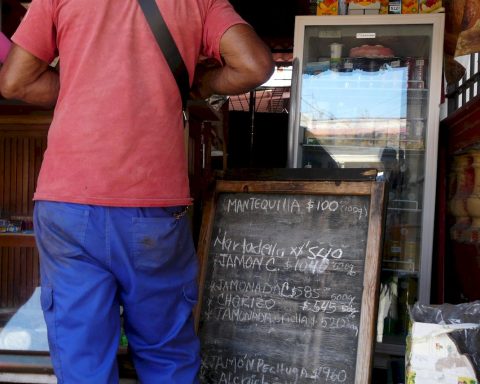Commercial establishments that charge 5% more for consumption payments with credit cards must inform consumers about it in advance, so that they can decide their purchases properly, said the technical secretary of the Consumer Protection Commission 1 of the IndecopiEveling Roa.
According to the Consumer Protection and Defense Code, when the commercial establishment makes differences in the price of its products or services depending on the means of payment, that is, with cash a product costs five soles, for example, and with a card the cost is higher, the business is obliged to provide that information in a timely, prominent, visible and accessible manner to consumers, he said.
So, “consumers have to know when entering the commercial establishment that the products or services sold by that business have that difference depending on the means of payment,” he noted.
Thus, for example, at the entrance of the commercial establishment there should be a sign that warns that payments with Credit cards they have a surcharge, he mentioned Eveling Roa.
In the event that the commercial establishment does not comply with the regulations, there is a violation of the duty it has and the right of consumers to receive clear and timely information to make appropriate consumer decisions, he said.
“Consumers could choose to go to other businesses that do not charge them this surcharge (for paying by credit card for their purchases). That is why it is important (the information), because it is decisive or could be decisive for their consumption decisions”he added.
If the breach of this obligation of commercial establishments is verified, the sanctions range from a reprimand to 450 tax units (UIT), according to what is established by the norm, he said.
Complaints book
He then stated that if a person was not informed about the surcharge on their consumption for paying by credit card, the consumer should request the complaints book, whether physical or virtual, to record it, since it is a form of have more accurate evidence of what happened.
Thus, if the consumer does not have a satisfactory answer in the complaints book, he can go to the Indecopi and present your claim, which is free and can be done virtually, with the parties being able to reach a conciliatory agreement, that is, resolving the matter amicably, he said.
If the conciliation does not result, the consumer can present his complaint, either before the Organ of Summary Procedure or in the Consumer Protection Commission, he indicated.
“It is not that it is a requirement (conciliation, a step prior to the complaint before the Body of Summary Procedure or the Consumer Protection Commission), since it can be one or the other, but conciliation is recommended because in that space providers access with consumers for a matter of customer loyalty, etc.”I note.
In the event that the commercial establishment does not deliver or denies the complaint book to the consumer so that they report the additional charge by credit card not informed in advance or did not have a complaint book, the consumer can go to the institution to report it and In addition, the business did not notify in advance the additional charge for card purchases, he finally said.
















